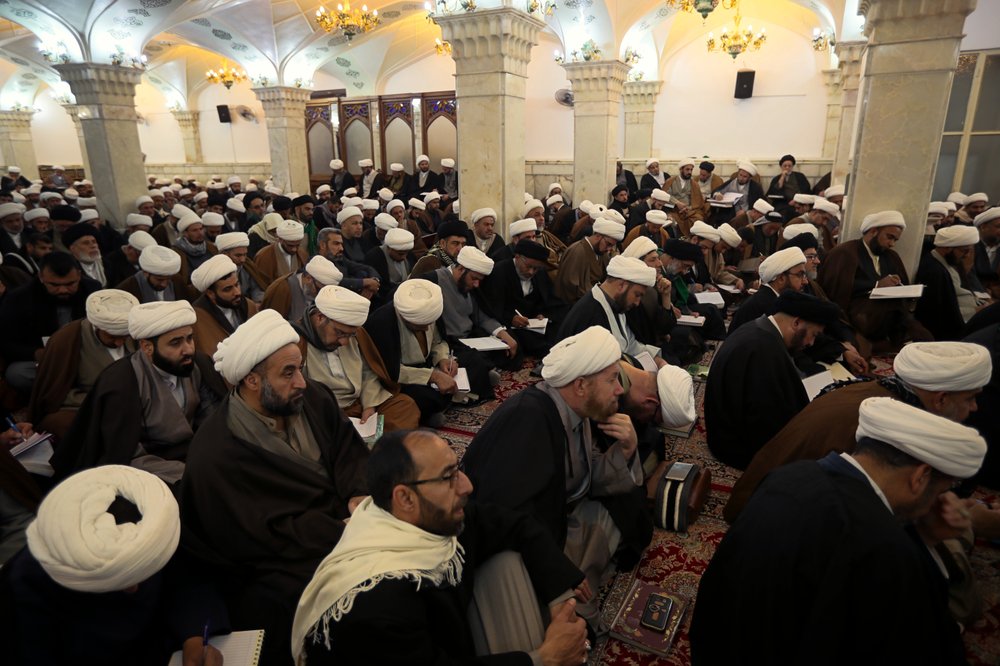
BAGHDAD (AP) — Iraq’s top Shia cleric on Sunday threw his support behind the prime minister’s announcement to hold parliamentary elections ahead of schedule next year, saying the timing should not serve the interests of political groups.
Grand Ayatollah Ali al-Sistani’s comments came in a statement released by his office after a meeting with UN envoy to Iraq, Jeanine Hennis-Plasschaert. A photo released by al-Sistani’s office showed the black-turbaned cleric meeting with the UN envoy and an interpreter.
Sunday’s meeting was the first public face-to-face between al-Sistani and a foreign official since the spread of coronavirus in Iraq earlier this year. The country is one of the hardest-hit by the virus in the region, with nearly 300,000 confirmed cases and more than 7,900 deaths.
It is also the first such meeting since al-Sistani, 90, underwent surgery for a fractured bone in January.
In August, Iraqi Prime Minister Mustafa al-Kadhimi said parliamentary elections would be held in June, nearly a year before they had been scheduled to take place. Early elections have been a key demand of protesters, who have been holding mass demonstrations since October demanding change in the country where corruption is widespread.
A new government will be formed by the politician who secures the most support from parliamentary blocs after the elections.
“Parliamentary elections scheduled for next year are very important,” the Iran-born al-Sistani, who enjoys wide influence in Iraq and among Shia Muslims worldwide, said. He said the vote should be held under fair conditions that give them credibility so that people are encouraged to participate.
Al-Sistani said early elections are “the right and peaceful” path to getting out of the current host of political, economic, security and health problems Iraq faces.
The cleric warned that delays in holding the elections in a free and fair manner “will lead to deepening the country’s problems and reaching, God forbid, a point that would threaten its unity and the future of its people.”
Al-Sistani also called on the government to investigate major cases of corruption in the country and to “to seriously work to reveal all those who committed criminal acts that killed and wounded protesters and security forces.”
According to the prime minister’s office, some 560 protesters have been killed mostly by gunfire from Iraqi security forces. Al-Kadhimi has vowed to investigate their deaths.
Image: In this Sunday, Feb. 2, 2020, Shia seminary students attend a lecture at “Hawza” seminary, in the holy shrine of Imam Ali, the son-in-law, and cousin of the Prophet Muhammad and the first Imam of the Shiites, in Najaf, Iraq. Grand Ayatollah Ali al-Sistani, Iraq’s top Shiite cleric, turns 90 this year, and when he recently had surgery it sent chills around the country and beyond. What happens when al-Sistani is gone? Iran is likely to try to exploit the void to gain followers among Iraq’s Shia. Standing in its way is the Hawza, the centuries-old institution of religious learning which al-Sistani heads and which follows its own tradition-bound rules. (AP Photo/Hadi Mizban)




